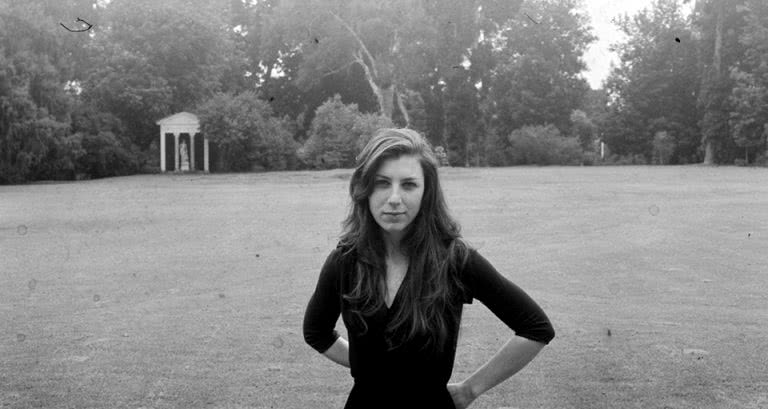In late 2011, Los Angeles songwriter Julia Holter emerged with an erudite and quietly experimental debut record,Tragedy. Just six months later Holter unveiled her second album,Ekstasis, and last August came a third LP, the much-laudedLoud City Song. Commercial standards seem to dictate that artists should release an album every two to three years, but Holter clearly feels no pressure to abide by this abstract norm.
“I just think if you want to make something, you need to make it,” she says. “People used to release records every year – that was normal. I’m not going to force myself to, but I think it would definitely be silly to wait just because there’s some idea that you shouldn’t release a new record every year.”
The substantial depth of Holter’s three albums betrays no evidence of their swift construction. Loud City Song is based on the 1958 musical-film adaptation of French novel Gigi, while Tragedy takes inspiration from Ancient Greek play Hippolytus. “I felt, ‘Oh, this is just such good material to make music out of,’” says Holter, “kind of in the same way that all kinds of people over the course of history have made art out of things that already exist. It’s inspiring and it’s something to work off of, rather than creating your whole story all yourself.”
Although Loud City Song knowingly engages with the content of Gigi to express the feeling of invisibility in a crowded city, Holter clarifies that she wasn’t driven to do this by a lack of her own ideas. “I have a lot of imagination and I love coming up with ideas, but I really like to draw on other things that I read,” she says. “It’s fun for me and I think it possibly might make the work have more dimension.”
Creatively interacting with another piece of art allows one to adapt and expand upon the universal themes located within. Even though Holter acknowledges the genesis of her thematic focus, she intends for the lyrics to stand on their own merits. “People don’t need to go and watch Gigi the musical – I’m sure most people don’t want to – that’s not what I’m trying to do. I do it for myself, I do it to help me make music because it’s more inspiring sometimes to work with stories that are really nice.”
In addition to her intellectual curiosity, Holter’s music is unashamedly learned. Loud City Song again features the avant-garde orchestration and atmospheric details heard on her first two records,but it also introduces bolder melodies and jazzy arrangements. This expansion could partly be explained by the fact it was recorded in a studio (as opposed to Holter’s bedroom) with an ensemble of musicians, including co-producer Cole M. Greif-Neill (Ariel Pink, Nite Jewel). Yet, despite the increased accessibility of this album, Holter says she wasn’t consciously trying to craft something more agreeable.
“You can think, ‘People are going to hear this,’ and that’s exciting. But if you think, ‘People will hear this and they’re going to want something else so I better change what I’m doing’ – very few times is that constructive. You have to do what works for you. You’re the leader, you’re the creator and they’ll decide if they like it or not.”
Holter’s multi-faceted trio of releases proves that working purely by your own designs begets many creative rewards. “A lot of times I’ll be like, ‘I’m totally crazy, what am I doing?’ and then I’ll be like, ‘Oh well, I guess I’m crazy,’” she resolves. “You have to just do what you want to do, because you’re not going to know what people want, ultimately.”
Julia Holter plays withDucktails atThe Standard onWednesday February 12.
Loud City Song isout now through Domino/EMI.


































